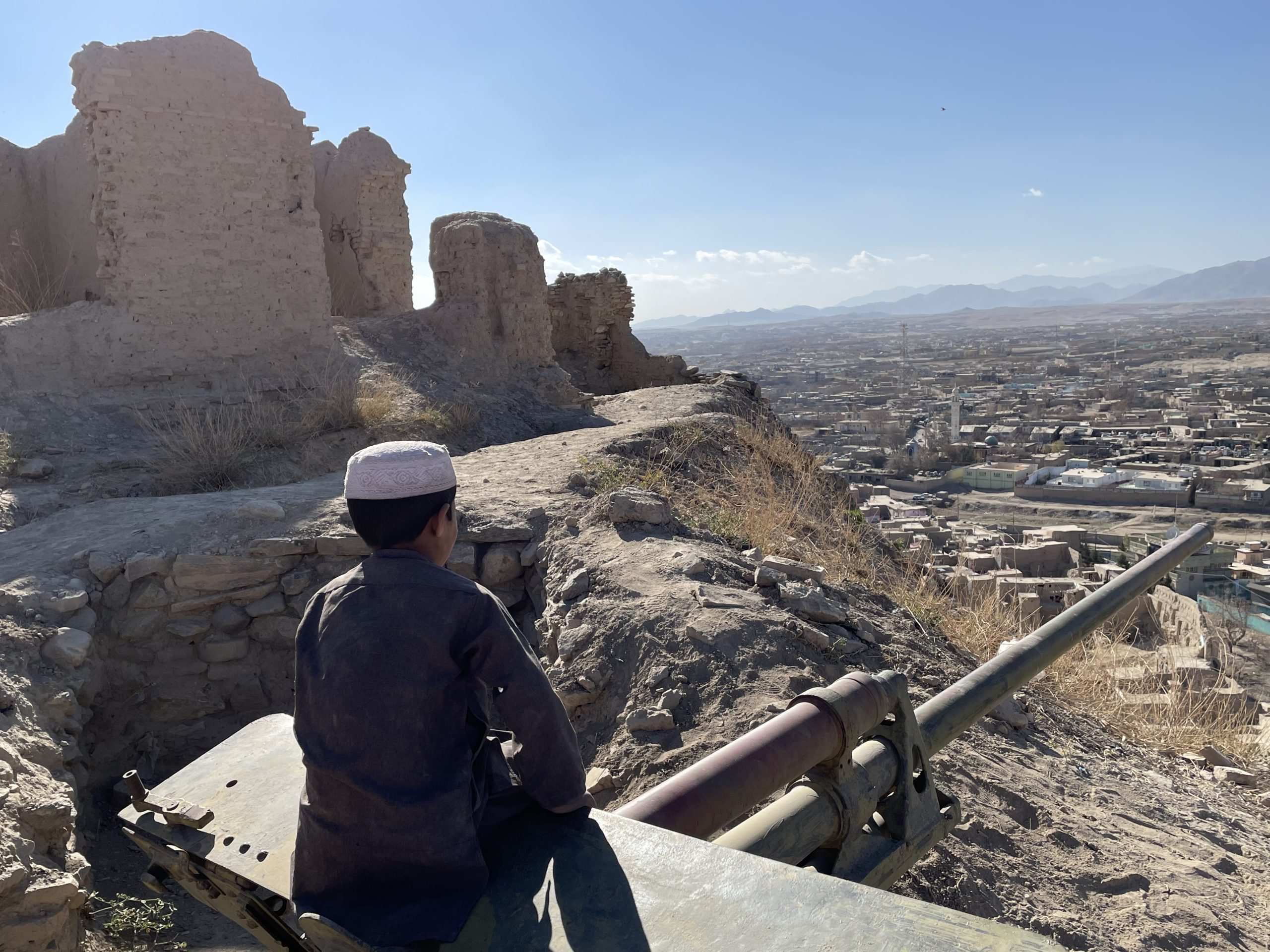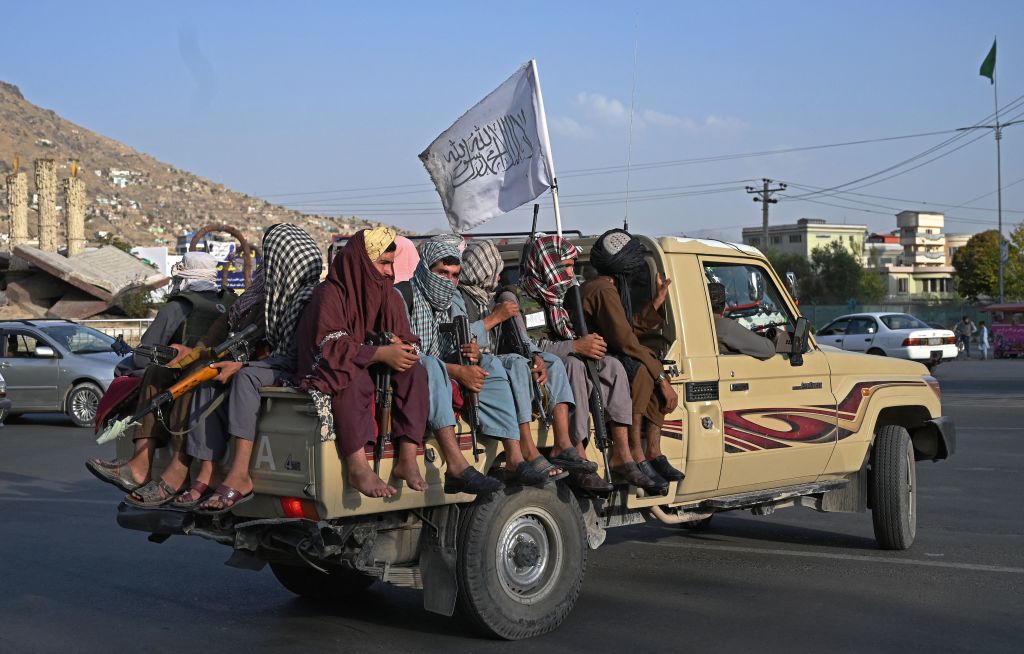Twenty years of ruling class failure.
Pillaging by Proxy

U.S. foreign policy leaders have become addicted to outsourcing atrocities.
In his 2011 farewell address to graduates of the U.S. Military Academy at West Point, then-Defense Secretary Bob Gates raised eyebrows when he said that any future Pentagon chief “who advises the President to again send a big American land army into Asia or the Middle East or Africa should ‘have his head examined,’ as General MacArthur so delicately put it.” He made the statement just months before NATO began its aerial assault on the Libyan state, and it would prove to be one of his last major speeches as Secretary of Defense. That fall, having lost the argument over whether to deepen U.S. involvement in the Syrian civil war, Gates was replaced at the Pentagon by then-CIA Director Leon Panetta. Panetta was in turn replaced at Langley by unconventional warfare guru David Petraeus, who would run the covert regime-change war as Director of Central Intelligence.
The jihad against Syria was to replay the CIA’s war against the Soviets in Afghanistan, except in reverse. In the 1980s, the agency worked with America’s Muslim allies, using existing madrassa networks to identify and radicalize potential mujahadeen recruits, train them, arm them, and transport them to Afghanistan. Young Muslim men were funneled out of slums from Karachi to Cairo to fight the Red Army, and helped turn Afghanistan into “the Russians’ Vietnam.” The sense that Operation Cyclone was an historic success hardened into dogma when the USSR commenced its collapse in 1989. The Soviets had been defeated, and it only cost the lives of people about whom no one cared, from places about which no one had even heard. Enthusiasm for the proxy war in Afghanistan was hardly even dampened by the mischief a few of our new friends caused on September 11, 2001.
When the Arab Spring hit the streets of Damascus in 2011, CIA Director Panetta and many others argued that it was a prime opportunity to finally rid the world of the troublesome Assad regime. President Obama was unenthusiastic about involving the U.S. military, but he was eventually sold on the idea that Assad could be toppled, and Syria liberated, without placing an American boot on the ground. If mujahadeen could be employed to defend a country like Afghanistan, why couldn’t they also be used to destroy a country like Syria? Gates was skeptical, arguing that proponents of the jihad were overestimating our ability to calculate and determine outcomes. His position reflected a general squeamishness at the Pentagon over arming and training the same type of people who’d flown planes into our buildings just a decade earlier. Though his position would be vindicated soon enough, Gates was out, Panetta and Petraeus were in, and the rest is history.
Young Muslim men from all over the world were trained and armed by America and its allies, then sent to take part in the ongoing destruction of Syria. The Islamic State (ISIS) was formed by a remnant of Al Qaeda-in-Iraq which had taken refuge in Syria and grew in the fertile chaos of the country’s civil war. While the overall composition of the Syrian “rebels” included people with a diverse array of backgrounds and motivations, virtually all of the so-called moderates were only interested in protecting their towns and neighborhoods amidst the worsening carnage. The only significant anti-Assad forces in the country were led by international jihadists of the worst kind, and a large portion of the weapons, supplies, and personnel we pumped into Syria ended up in their hands. U.S. military personnel, who had spent the last decade fighting such people, and knew a jihadist when they saw one, remained skeptical of this approach. In an interview on the War Nerd podcast, former Army Special Forces soldier Jack Murphy said that U.S. military trainers eventually came near to mutiny over being forced to arm and train the Muslim extremists being sent to them by the CIA.
By the time the Russians and Iranians rode to the rescue, our pet jihadists had advanced to the outskirts of Damascus, and were on video announcing their plans to wipe out the infidels (in case there was any confusion after witnessing their sectarian purges on the way to the capital). In one such video, the leader of a group that received direct support from the U.S. and our allies was heard lamenting that God would surely punish the Muslims for not eliminating the Alawites sooner. After being liberated, survivors of the short-lived jihadist regimes in cities like Aleppo reported helplessly cowering in fear as undisciplined gangs of armed foreigners invaded their homes in search of their valuables and their daughters. War is always ugly, but there is nevertheless a set of rules, explicit or unspoken, to which civilized nations are supposed to adhere to prevent war from descending into hell. It is one thing to invade a country, and an entirely different level of atrocity to send a bunch of unregulated foreign extremists hopped up on hashish and Captagon to do the job.
Once Russian and Iranian air power helped turn the tide of the conflict, anonymously sourced newspaper articles appeared calling for the enforcement of a no-fly zone over Syria. According to official U.S. military doctrine, that would have meant destroying all Syrian, Russian, and Iranian air defense systems, and shooting down any of their aircraft that dared to fly. Even putting aside the danger of these acts of war, recent experience made it seem unlikely that U.S. intervention would hold to the narrow mission of enforcing a no-fly zone. In Libya, NATO had convinced Russia to sign off on a no-fly zone to prevent Gaddafi’s aircraft from being used against civilians, but instead attacked and destroyed Gaddafi’s military forces altogether, allowing the jihadist rebels to take over the country.
The Syrian conflict illustrates one of the great dangers of an unregulated covert operations agency like the CIA. With black budgets and covert fundraising capabilities, they have the resources to involve us in a fight without consulting the political process. After all, it is unlikely that the American people would have agreed to fight on the same side as an Al Qaeda affiliate before the new World Trade Center building had even been completed. When the intelligence community’s grand plans go awry, they use their propaganda power to try for a military bail-out. The Pentagon understood this, and in the final stages of the conflict restricted its support to working with the Kurdish-led Syrian Democratic Forces to destroy ISIS (which more than once meant attacking CIA-sponsored militants) in the far northeast of Syria.
Bashar al-Assad is not a man most of us would want as a neighbor, but the plain reality during the Syrian war was that all of the country’s Christians, Druze, other minorities, and even many Sunni Muslims who feared the jihadists were living under his protection in the Alawite-controlled portion of the country. Imagine if the Russians or Chinese were to fund, arm, and train a bunch of KKK, neo-Nazi, insert-bad-guy militias to overthrow the U.S. government, and on their way to Washington, DC they stopped to genocide or enslave all the blacks, Jews, and other minorities they encountered.
It would be rightly considered not merely an act of war, but a war crime that could only have been conceived in the capitals of the most amoral and ruthless nations on earth. Unfortunately, our foreign policy establishment has become addicted to this filthy mode of war. Time and again, the regime has empowered violent, often genocidal groups and individuals, set them like mad dogs on a targeted regime, and then denied knowledge and responsibility when, as in Afghanistan, and Libya, and Syria, the dogs turned around to bite their owner. In the 1980s, we worked with Colombian drug lords to equip and train savage militias to use against socialist and Communist groups in Central America. When the 2014 Kiev EuroMaidan protests seemed to be losing steam, we lent our support to fascist and neo-Nazi militants who rewarded our confidence with a simultaneous sniper attack on both protesters and police, causing a massacre that took the lives of almost 50 people.
From the Ottoman Empire’s genocide of Armenians during the First World War to the Provincial Reconnaissance Units the CIA employed for the Phoenix Program in Vietnam, vicious regimes throughout history have often employed violent criminals to carry out dirty work from which disciplined soldiers might flinch. The use of extremist proxies, like military drones, makes the decision to go to war seem far too cheap and easy. Just as we never stopped using child labor, but merely transferred production to countries where we do not have to see or take responsibility for it, we continue to use extremists and criminals to engage in conflicts and commit atrocities the American people would not accept from our own soldiers. Americans were horrified by the macabre pictures that emerged from the Abu Ghraib prison scandal, but few have given a thought to the countless prisoners we sent through extraordinary rendition to the torture dungeons of Egypt, Yemen, and, yes, Syria. Out of sight, out of mind.
This has to stop. We cannot wash our hands of the atrocities committed by our proxies. As someone interested in history, I imagine what people in the future will read about the United States, and what they will read matters to me. For too long, we have allowed ourselves to be ruled by people unworthy of leading a great nation. It is too late to save future history books from being marred by their villainy, but we can make sure that they do not write the final chapter.
The American Mind presents a range of perspectives. Views are writers’ own and do not necessarily represent those of The Claremont Institute.
The American Mind is a publication of the Claremont Institute, a non-profit 501(c)(3) organization, dedicated to restoring the principles of the American Founding to their rightful, preeminent authority in our national life. Interested in supporting our work? Gifts to the Claremont Institute are tax-deductible.
Our worthless elite were not always, and will not always be, in charge.
None of the usual excuses serve to explain a major foreign policy disaster.
Our corrupt elites have stolen the valor of American heroes. Time to take it back.




